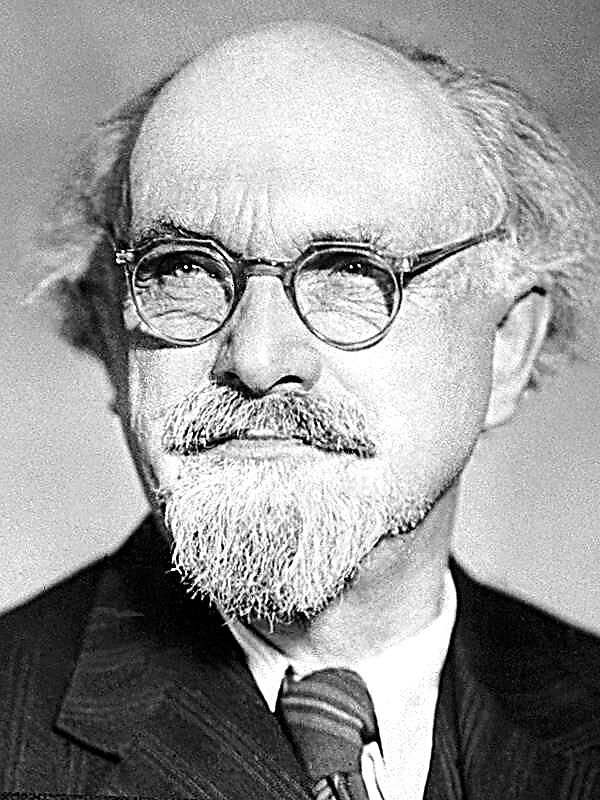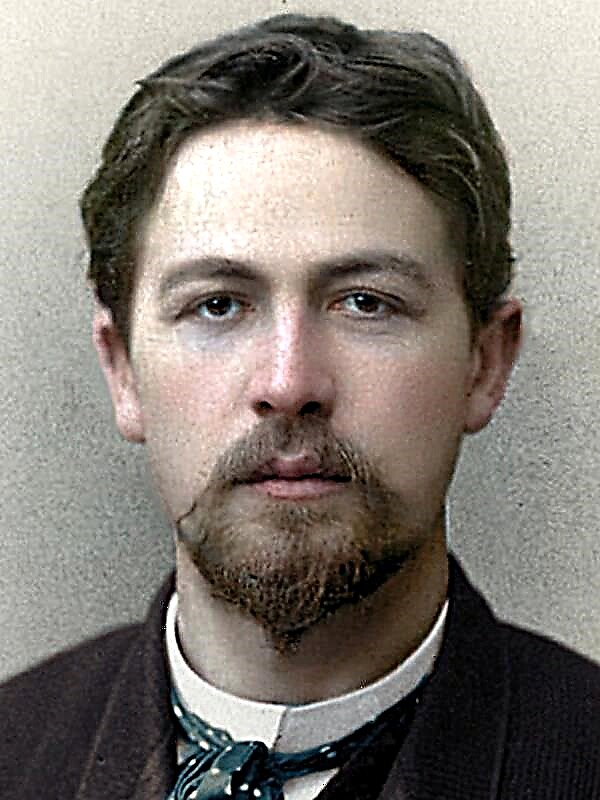On a July evening in 1689, the Abbot de Kerkabon and his sister walked along the seashore in his small priory in Lower Brittany and reflected on the bitter fate of his brother and his wife, who had sailed twenty years ago from that very coast to Canada and disappeared there forever. At this moment, a ship moors into the bay and lands a young man in the clothes of an Indian, who seems simple-minded, as his English friends called him for sincerity and unchanging honesty. He impresses the venerable prior with courtesy and sanity, and he is invited to dinner at a house where the Innocent is introduced to the local community. The next day, wanting to thank his masters for their hospitality, the young man gives them a talisman: portraits of unknown people tied up on a cord in which the prior excitedly recognizes the captain who has disappeared in Canada and his wife. The simple-minded did not know his parents, and he was raised by the Huron Indians. Having found loving uncle and aunt in the person of Prior and his sister, the young man settles in their house.
First of all, the good prior and his neighbors decide to christen the Innocent. But first, it was necessary to enlighten him, since it is impossible to convert an adult into the new religion without his knowledge. The simple-minded reads the Bible, and due to natural understanding, and the fact that his childhood was not burdened with trifles and absurdities, his brains perceived all objects in an undistorted form. The godmother, according to the desire of the Simple-minded, was invited by the charming ma'l de Saint-Yves, the sister of their abbot neighbor. However, the mystery was suddenly threatened, since the young man was sincerely sure that it was possible to be baptized only in the river, following the example of the characters of the Bible. Unspoiled by conventions, he refused to admit that the fashion for baptism could change. With the help of the charming St. Yves the Simple-minded, I still managed to persuade me to be baptized in the font. In the tender conversation that followed the baptism, the Simple-minded and Maul de Saint-Yves confess their mutual love, and the young man decides to marry immediately. The virtuous girl had to explain that the rules require permission for the marriage of their relatives, and the Innocent considered it another absurdity: why the happiness of his life should depend on his aunt. But the venerable prior announced to his nephew that, according to divine and human laws, marrying a godmother is a terrible sin. The simple-minded objected that the Holy Book says nothing about such stupidity, as well as about many other things that he had observed in his new homeland. He also could not understand why the pope, who lives four hundred leagues and speaks a foreign language, should allow him to marry his girlfriend. He vowed to marry her on the same day, which he tried to implement by breaking into her room and referring to her promise and his natural right. They began to prove to him that, had there not been a contractual relationship between people, natural law would have turned into natural robbery. We need notaries, priests, witnesses, contracts. The simple-minded objections that only dishonest people need such precautions among themselves. He is reassured by saying that it was honest and enlightened people who came up with the laws, and the better a person is, the more obediently he must obey them in order to set a vicious example. At this time, the relatives of Saint-Yves decide to hide her in a monastery in order to marry an unloved person, from which the Simple-minded person becomes desperate and furious.
In gloomy gloom, the simple-minded wanders along the shore when he suddenly sees a detachment of Frenchmen retreating in panic. It turned out that the English squadron treacherously landed and was about to attack the town. He rushes valiantly at the English, wounds the admiral and inspires the French soldiers to victory. The town was saved, and the simple-hearted glorified. Fascinated by the battle, he decides to storm the monastery and rescue his bride. They keep him from this and give advice to go to Versailles to the king, and there to get a reward for saving the province from the British. After such an honor, no one will be able to stop him from marrying M. de Saint-Yves.
The simple-minded way to Versailles lies through the small town of Protestants, who have just lost all rights after the abolition of the Nantes Edict and forcibly converted to Catholicism. Residents with tears leave the city, and the Simple-minded is trying to understand the reason for their misfortunes: why the great king goes on the occasion of the pope and deprives himself of six hundred thousand faithful citizens to please the Vatican. The simple-minded is convinced that the guilt of the Jesuits and the unworthy advisers surrounding the king is to blame. How else could he indulge dad, his open enemy? The innocent promises the inhabitants that, having met the king, he will reveal the truth to him, and having known the truth, according to the young man, one cannot help but follow it. Unfortunately for him, a disguised Jesuit was present at the table during the conversation, who was a detective under the king’s confessor, Father Lachaise, the main persecutor of poor Protestants. The detective scribbled a letter, and the Simple-minded arrived in Versailles almost simultaneously with this letter. The naive young man sincerely believed that upon arrival he would immediately be able to see the king, tell him about his merits, obtain permission to marry St. Ives and open his eyes to the position of the Huguenots. But the Simple-hearted manages to hardly get a reception from a court official who tells him that at best he will be able to buy the rank of lieutenant. The young man is outraged that he still has to pay for the right to risk his life and fight, and promises to complain about the stupid official to the king. The official decides that the Simple-minded is out of his mind and does not attach importance to his words. On this day, Father Lachaise receives letters from his detective and relatives, Mr. St. Yves, where the Simple-minded is called a dangerous trouble-maker, who tried to burn monasteries and steal the girls. At night, the soldiers attack the sleeping young man and, despite his resistance, take him to the Bastille, where they throw him in prison to the imprisoned Jansen philosopher.
The kind father Gordon, who later brought so much light and comfort to our hero, was imprisoned for refusing to recognize the pope as the unlimited sovereign of France. The old man had great knowledge, and the young one had a great desire to acquire knowledge. Their conversations are becoming more instructive and entertaining, while the naivety and common sense of the Simple-minded person confound the old philosopher. He reads historical books, and history seems to him a continuous chain of crimes and misfortunes. After reading the "Search for Truth" by Malbranche, he decides that everything that exists is the wheels of a huge mechanism, the soul of which is God. God was the cause of both sin and grace. the mind of a young man is strengthened, he masters mathematics, physics, geometry and at every step he expresses quick wits and a sound mind. He writes down his reasoning, terrifying the old philosopher. Looking at the Simple-minded, it seems to Gordon that for half a century of his education, he only strengthened prejudices, and the naive young man, listening to only one simple voice of nature, could come much closer to the truth. Free from misconceptions, he proclaims the freedom of man as his most important right. He condemns the Gordon sect, suffering and persecuted because of disputes not about truth, but about dark delusions, because God has already presented all important truths to people. Gordon understands that he doomed himself to misfortune for the sake of some nonsense, and the Simple-minded does not find wise those who expose themselves to persecution because of empty scholastic disputes. Thanks to the outpourings of a young man in love, the stern philosopher learned to see in love a noble and gentle feeling that can elevate the soul and generate virtue. At this time, the beautiful sweetheart of the Innocent decides to go to Versailles in search of a loved one. She is released from the monastery to marry, and she slips away on her wedding day. Once in the royal residence, the poor beauty, in complete confusion, is trying to get a reception from various tall faces, and finally she manages to find out that the Simple-minded is imprisoned in the Bastille. The official who revealed this to her says with pity that he does not have the power to do good, and he cannot help her. But here the assistant to the omnipotent minister, Mr. de Saint-Pointe, does both good and evil. An approved Saint-Yves hurries to Saint-Pointe, and he, fascinated by the beauty of the girl, hints that at the cost of her honor, she could cancel the order to arrest the Simple-minded. Friends also push her for the sacred duty to sacrifice female honor. Virtue forces her to fall. At the cost of shame, she frees her beloved, but exhausted by the consciousness of her sin, the tender Saint-Yves cannot survive the fall, and, seized by mortal fever, dies in the arms of the Simple-hearted. At this moment, Saint-Pointe himself appears, and in a fit of remorse swears to make amends for the inflicted misfortune.
Time softens everything. The simple-minded became an excellent officer and honored the memory of the beautiful Saint-Yves until the end of his life.












